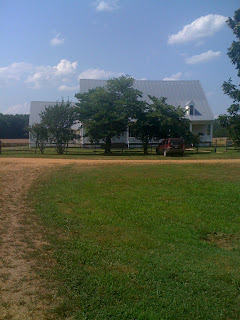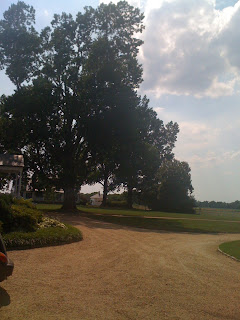
In 1825 David Minge (“meengee”), who must have been about 17 years-old, took all the way to Baltimore. That was some trip if you
consider that he had to get on a comfortless carriage in his Virginian North Bend plantation, cross through swampy Charles City to get to Richmond, and travel to Charlottesville, and then Manassas on very bumpy roads, to perform next a last leap over several miles of Maryland small farms and spots of wilderness before finally arriving to Baltimore. The harbor was not as attractive as it is today, but the city was almost as livable as Richmond, which he was very familiar with. So, why would he have wanted to journey all the way to Baltimore?
David was a teenager with lots of power now. He had just earned a degree from the College of William and Mary, the most reputable university in the South. David was healthy and strong—he was going to live a full life of 76 years—and was handsome and well spoken. David ancestors had been eating well since they arrived in Virginia from Wales in the 17th Century, and were well connected with the southern high society. To anybody in t
he street he would have looked like a privileged gentry’s male in his prime, a bit humble, but well-dressed and refined, with a charming southern accent. What a catch. But he did not come to Baltimore seeking a bride nor was he looking to the liberal north for a casual tryst.
Though it was obvious from the distance that David was not like your average White male, his charm and bearing were the least of the surprises for the Anti-Slavery radical Benjamin Lundy, who a few years before had come himself all the way from Ohio to Baltimore to broaden the reach of his diehard activist paper, “The Genius of Universal Emancipation.” There was something else that was going to splash on Lundy’s face like fresh water on a desert.
David had just inherited 90 slaves in addition to lots of cultivated land in arguably the best location in Virginia: The Tidewater, where the nutrient-filled water of the James River makes a broad opening toward the sea. It was the perfect location for plantations because the land was fertile enough to plant practically anything. It was at Richmond’s waterway entrance to the ocean and thus could move along cash-crops to virtually any place in the long chain of Atlantic trade networks.
And the Tidewater region was the perfect place for plantations that depended on slave labor because there were no mountains, caverns or hiding place, but small swampy dots easily enclosed by headhunters. It was also near to one of the least cosmopolitan and most conservative cities of the union, Richmond. Whites from all social classes were engaged in imposing the social order based on race differentiation. In other words, with nowhere to escape, the enslaved had to submit or find other less intimidating forms to resist the system.
David could be cocky, then. His future could be as one of his ancestors who had served in the House of Burgesses, state assemblies, and in the Federal Government. But he came to Baltimore not to talk with commercial agents or bankers, but to visit Lundy’s unrem

arkable office, from where his paper emanated like today’s current online blogs—yes, Lundy was like an activist blogger. The question still stands: what would this young fortunate man wanted to do in Baltimore?
He had come all the way from the South to liberate the enslaved Blacks he had just inherited. Why would he do that? In what manner was he going to free them? What were the repercussions of his act?
